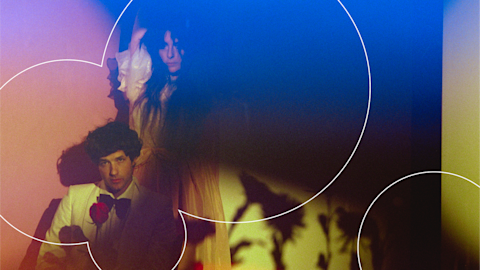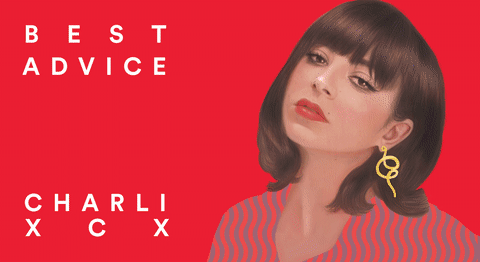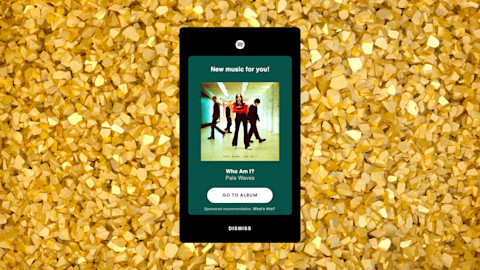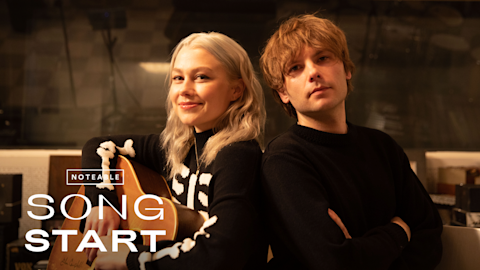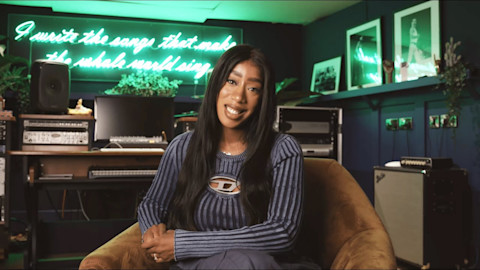For many people, listening to music is a source of healing and emotional support, and often that is doubly true for the people who make it. But working in music can be paradoxical in that, while sharing music with others probably brings you tremendous joy, it can also put you under enormous pressure. Touring, negotiating financial uncertainties, and working long, nontraditional hours can all put a strain on your mental health.
But mental health is just as important as physical health. And while it hasn’t always been taken as seriously in the music industry, there are signs that this is beginning to change. Well-known artists such as Shamir, Kate Nash, Benga, and Joanna Gruesome frontwoman Alanna McArdle have spoken publicly about their mental-health struggles, and their voices are part of a growing movement within the industry to raise awareness about often interconnected issues such as substance abuse, depression, and suicide.
Unfortunately, while many musicians are surviving their battles with mental illness to share their stories, some stories are still ending in tragedy. The loss of Swedish DJ Avicii to suicide and the death of Frightened Rabbit frontman Scott Hutchinson following his disappearance during a period when, his family reported, he had been having an especially difficult time emotionally, stand out as two such painful stories. Sadly, they underscore the urgency of the conversation around mental health and music, and of destigmatizing mental illness.
The music business remains a challenging environment, but there are many things artists themselves can do to care for their mental health. Here are some simple ideas (and a couple big ones) to help you stay sane and thrive while pursuing your career.
Reach Out
Be aware that help is out there. Programs across the United States, and in other parts of the world, provide free or low-cost mental-health care. Some, like Nuçi’s Space in Athens, Georgia, are geared specifically to the needs of those who work in the music industry. Nuçi’s Space is a resource center focused on suicide prevention that was founded in memory of Athens musician Nuçi Phillips, who committed suicide. The SIMS Foundation in Austin, Texas, helps connect musicians with mental health resources. It, too, was created in memory of a musician who took his own life, local Austin rocker Sims Ellison. The Recording Academy’s MusicCares charity provides emergency financial assistance for musicians’ health-care needs, including psychotherapy and treatment for addiction. Help Musicians UK has launched a 24-hour mental health support line for the music industry as part of their Music Minds Matter initiative.
Working musicians often don’t have health insurance, which can be one barrier to accessing therapy if they need it. Lily Courtney, staff clinician at The SIMS Foundation, says that many people aren’t aware that a number of mental-health organizations and counselors will reduce the cost of their services for low-income patients without insurance. “Most cities have what's called sliding-scale therapy. Everyone has access to a computer; Google 'sliding scale therapy services.' They're all over the place, and they'll be anything from $5 a session to $50 a session,” she says, adding that if you live near a university, it may have a program where graduate students in psychology provide discounted counseling services.
Lesley Cobbs is a counseling advocate at Nuçi’s Space. She recommends knowing where to find help before you need it, especially if you do live with a mental illness, and definitely before going on tour. “Most states have a mental-health crisis line. Find the number for your area while you're in a good frame of mind, and then when you're in a bad frame of mind you've got it in your wallet,” she advises.
Take Care
Many artists are at their happiest while touring; it can be a peak experience to do what you love every night. Playing live is also the primary source of income for large numbers of professional musicians. But heavy schedules can be exhausting, and they take their toll on mental health. Courtney sees this all the time with her clients. “The nature of the industry is such that [musicians are] on tour all the time, their sleep habits are off, their eating habits are really less than ideal, they're not exercising, and a lot of the coping skills that they might have when they're not on the road are not available to them,” she explains. For those who already deal with depression and anxiety, going without adequate sleep or nutrition can make things worse.
In addition to being a licensed counselor, Courtney has been a touring musician herself, so she knows how challenging it can be to take care of yourself while on the road—but she also knows how important it is. Her advice is to focus on making healthy choices whenever you can. “I would focus less on what not to eat and more on making sure that you're getting some fruit and vegetables. Don't think ‘I can't eat this piece of pizza’ when there's nothing else. Even at a gas station, they typically have some kind of banana or apple that you can get,” she says.
Another touring tip Courtney offers is to keep a journal, and find other ways to create your own space, at least mentally; take time for yourself, in order to cope with the emotional pressures of touring. She suggests: “When you're going to be on the road, make sure that you have some good reading and some sort of meditative practice. That could be anything from sitting still for 10 minutes and focusing on your breath to going on a walk and paying attention to your surroundings.”
Through her company The Unicorn Mothership, holistic coach Eline Van Audenaerde works with DJs and electronic musicians on building resilience and navigating challenges in their careers. Her clients may play sets in the wee hours of the night, but she tries to instill in them the value of establishing a healthy daily routine. “I always advise them to get up, even if they’ve only had a couple of hours of sleep; try to have breakfast and go through the day. Do something, meet some people, so they can have something of a normal day during the day, and then try to go to sleep early or take a nap in the afternoon,” she says.
Set Your Goals
Van Audenaerde will tell you that resilience in the music industry is all about goals. Resilience, she asserts, “really means to become aware of who you are and what your goals are, and—more importantly—what your values are in life.” This kind of clarity can help you stay focused and make the right decisions without getting overwhelmed, even when the going gets tough.
Once you have your goals figured out, managing your time becomes key to reaching them. Van Audenaerde believes practical things, like scheduling studio time to work on music and sticking to it, even if you are balancing music with a day job, can go a long way. “Manage your calendar,” she advises. “Set clear goals for the year. When do you want this album to be finished? How many gigs do you want to play?” Being clear on what matters to you and acting on it will make you more effective, and it can also make you happier.
Free Your Mind
If it seems there are things about the music industry that negatively affect your mental well-being, consider finding a different approach entirely. Rachel Lightner sings, writes, and plays guitar in the band Nervous Dater; she often sings about her personal struggles with anxiety and depression. Her early experiences as a nonbinary musician in the male-dominated punk scene left her feeling alternately invisible and tokenized by things like all “female-fronted” bills. “It took such a toll on me. I felt rejected and like I would never be accepted,” she recalls. What helped Lightner turn things around was seeking out diverse musicians she felt an affinity with and building positive community with them.
“We just started going to shows and finding people that we thought kind of sounded like us. We were all up-and-comers, and we started putting on these shows at a coffee house in Brooklyn with a basement, and that’s how our little scene was born. Sharing the stage with female—and every minority group—musicians like that is just such a relief and an inspiration. We’ve all encouraged each other a lot and [otherwise] wouldn’t be doing what we are doing now,” she enthuses. Not only can changing your approach in ways like this be vital to surviving as an artist, as Lightner learned—it can change the world, or at least your corner of it.
The National Suicide Prevention Lifeline in the United States is 1-800-273-8255
Samaritans in the United Kingdom can be reached by dialing 116 123.
-Beverly Bryan
